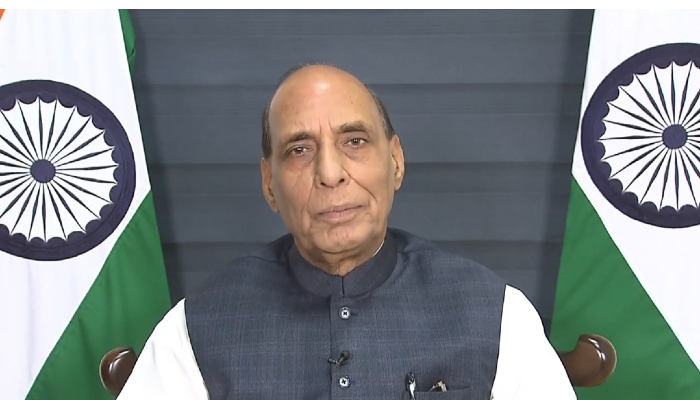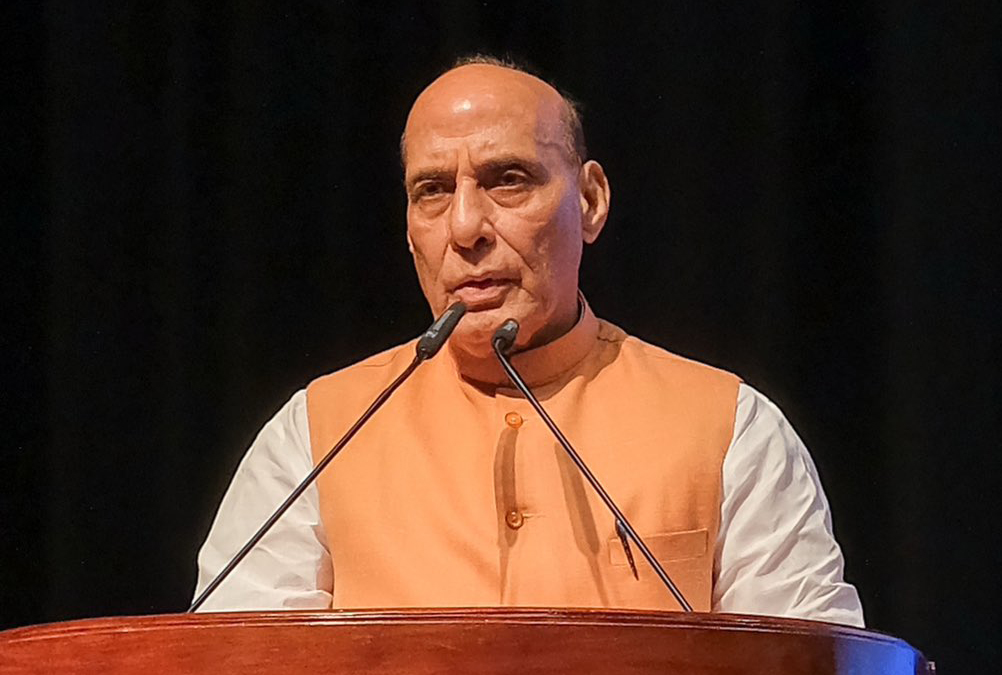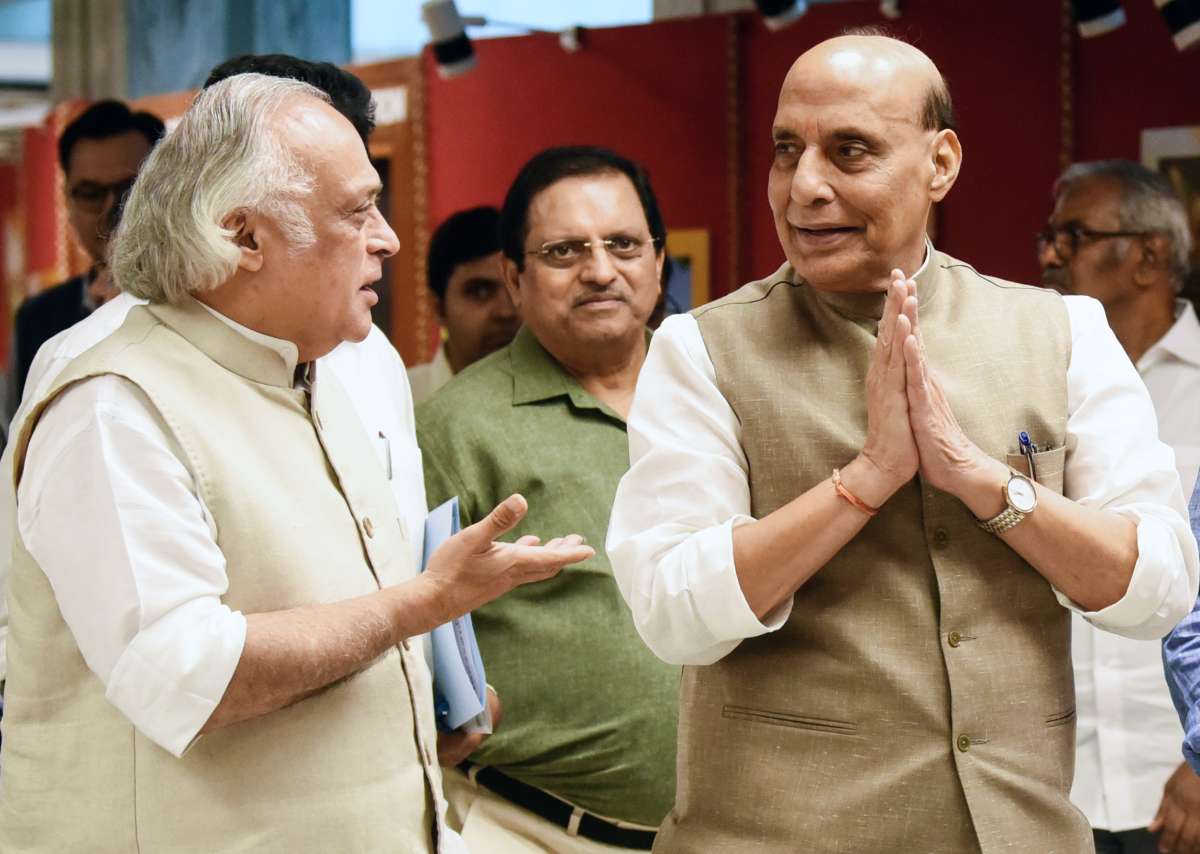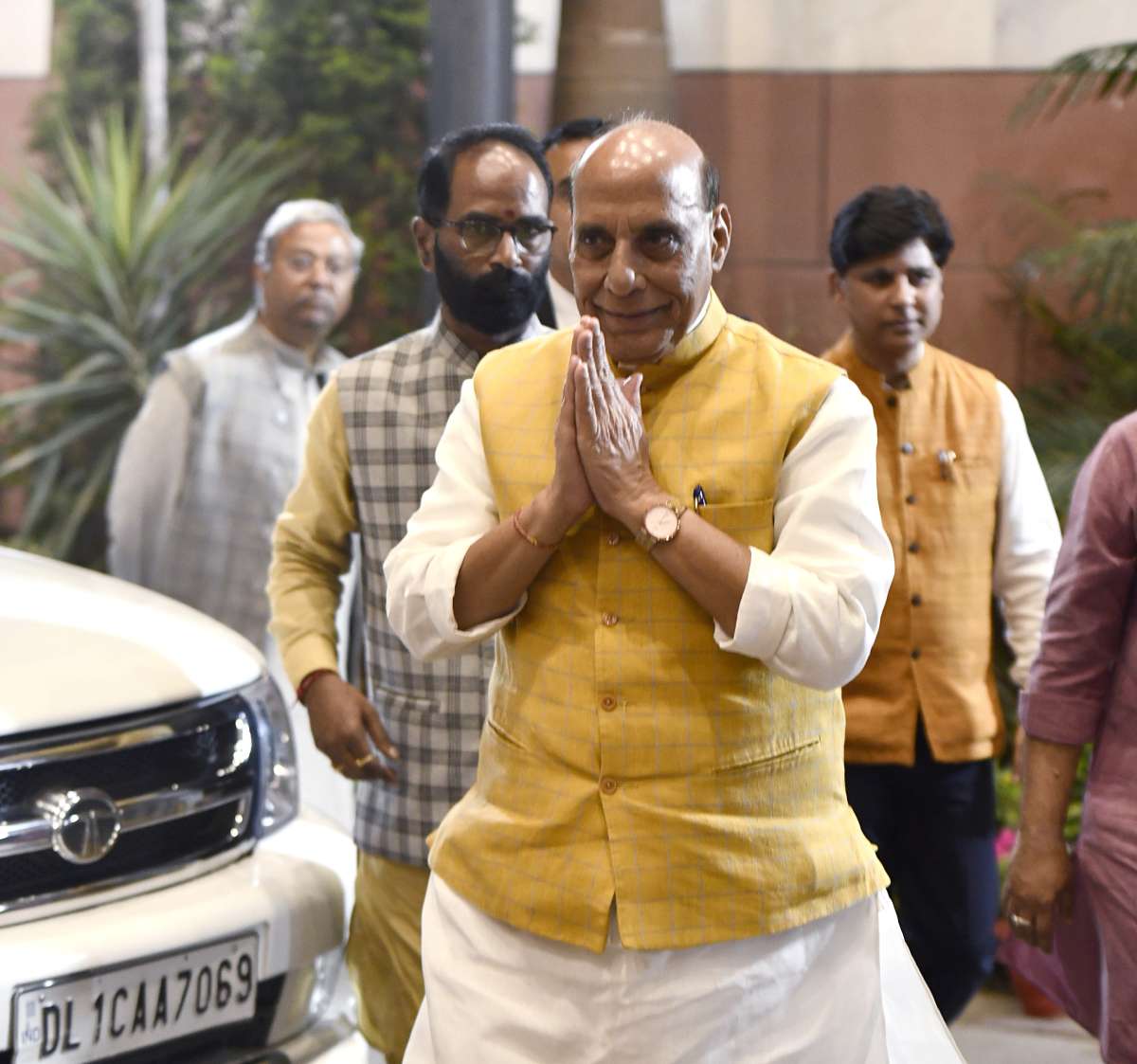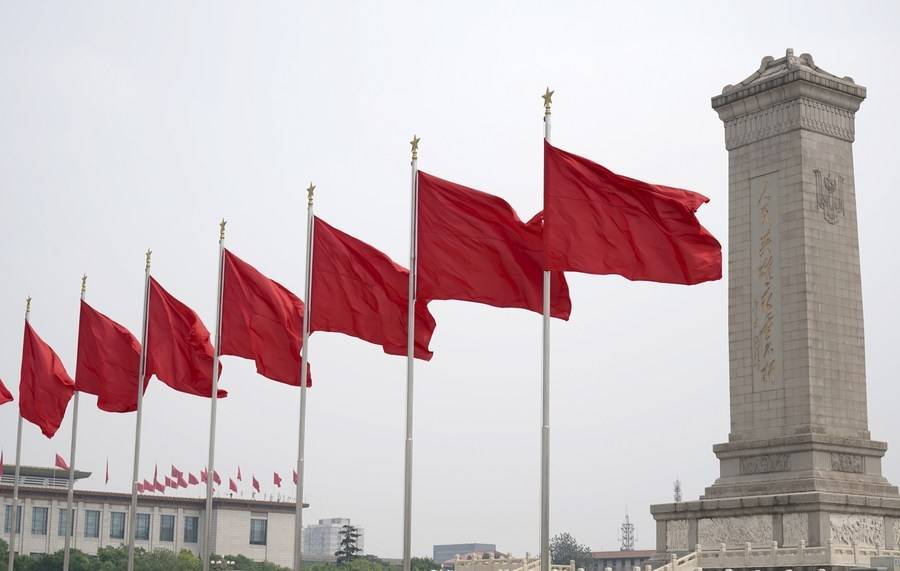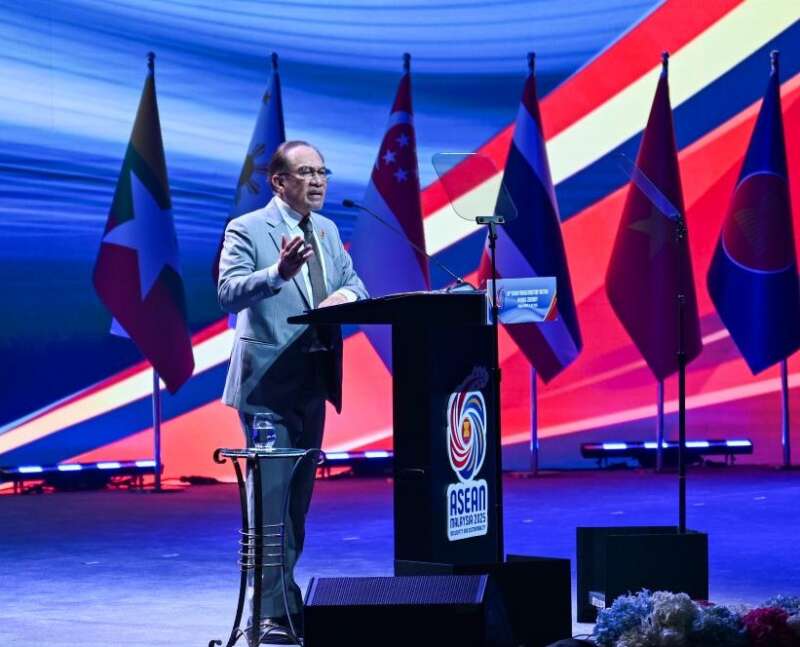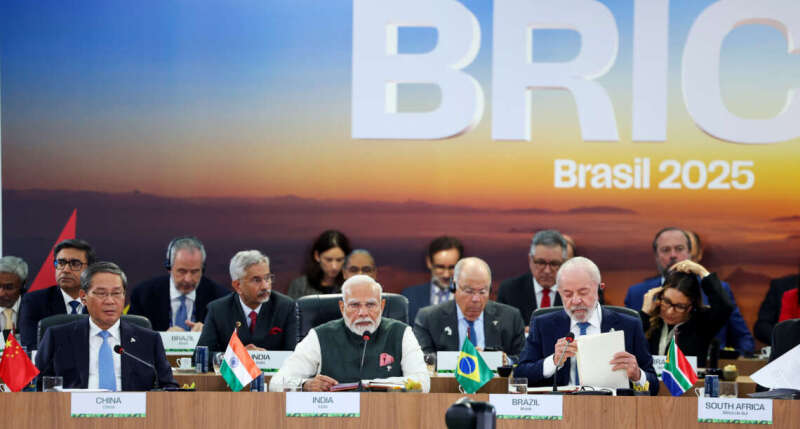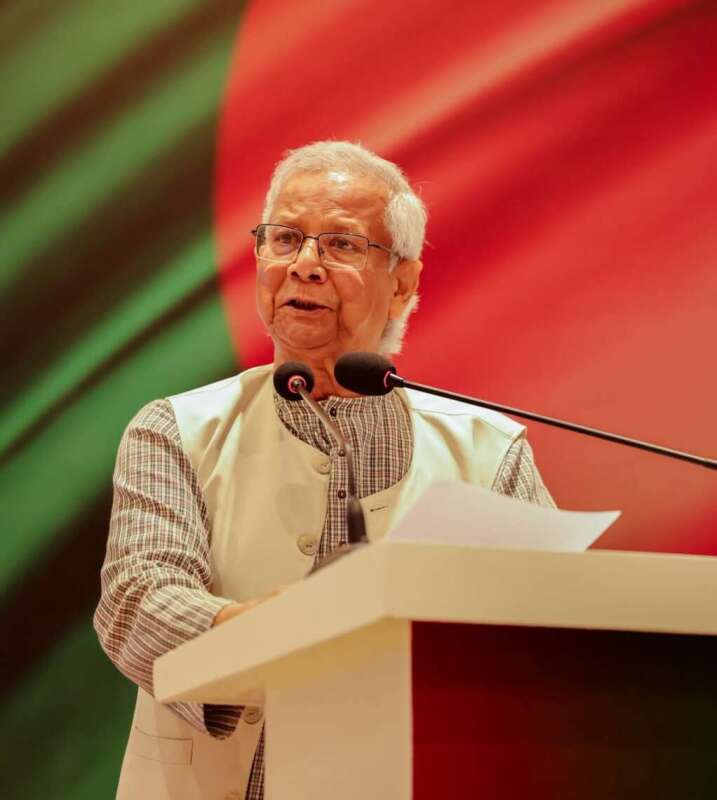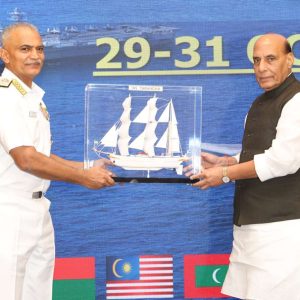He emphasised on the need for an efficient, cooperative and collaborative harnessing of the region’s maritime potential for sustaining a steady path to prosperity, said the Ministry of Defence…reports Asian Lite News.
India is fully determined to protect its maritime interests, while it supports the maintenance of rule-based maritime systems, Defence Minister Rajnath Singh said on Wednesday.
“India is committed to respecting the rights of all nations as laid down in the UN Convention on the Law of Seas (UNCLOS), 1982. We are fully determined to protect the legitimate rights and interests of our country in relation to our territorial waters and Exclusive Economic Zone, while supporting the maintenance of rule-based maritime systems, as mandated under UNCLOS, 1982,” he said.
Singh was delivering the keynote address at the Indo-Pacific Regional Dialogue (IPRD) 2021, being held virtually from October 27-29.
Referring to Prime Minister Narendra Modi’s description of the Indo-Pacific as a natural region, where destinies of entities are interlinked, Singh said, the seas are a vital communication link to facilitate transport of goods, exchange of ideas, catalysing innovations and contributing to bringing the world closer.
“Although the Indo-Pacific is characterised by diversity, marked by a multiplicity of cultures, ethnicities, economic models, governance systems and varied aspirations, the oceans remain a common binding link,” he pointed out.
He emphasised on the need for an efficient, cooperative and collaborative harnessing of the region’s maritime potential for sustaining a steady path to prosperity, said the Ministry of Defence.
According to the Defence Minister, while the seas offer abundant opportunities for sustenance and growth of the mankind, they pose challenges such as terrorism, piracy, drug trafficking and climate change.
He called for a cooperative response to these challenges which, he said, has considerable trans-national implications. “There is a need to find convergence of interests and commonality of purpose on maritime issues,” he said.
Sharing his views on the broad theme of IPRD 2021, ‘Evolution in Maritime Strategy during the 21st Century: Imperatives, Challenges and Way Ahead’, Singh said, it dwells upon the region’s past, gauges the present and then arrives at tenets that will form the foundation of maritime strategies for the future.
First conducted in 2018, the IPRD is the apex international annual conference of the Indian Navy and is the principal manifestation of the Navy’s engagement at the strategic-level. The National Maritime Foundation is the Navy’s knowledge partner and chief organiser of each edition of this annual event. The aim of each successive edition is to review both opportunities and challenges that arise within the Indo-Pacific.
Under the broad theme, the IPRD 2021 will focus on eight specific sub-themes. These are:
* Evolving Maritime Strategies within the Indo-Pacific: Convergences, Divergences, Expectations and Apprehensions.
* Adaptive Strategies to Address the Impact of Climate Change upon Maritime Security.
* Port-led Regional Maritime Connectivity and Development Strategies.
* Cooperative Maritime Domain Awareness Strategies.
* Impact of the Increasing Recourse to Lawfare upon a Rules-based Indo-Pacific Maritime Order.
* Strategies to Promote Regional Public-Private Maritime Partnerships.
* Energy-Insecurity and Mitigating Strategies.
* Strategies to Address the Manned-Unmanned Conundrum at Sea.
Panel-discussions on these sub-themes would be spread over eight sessions on three successive days, thereby providing ample scope for varied perspectives to be considered. The aim is to encourage a free flow of ideas and views.
Chief of the Naval Staff Admiral Karambir Singh, former Chief of the Naval Staff and Chairman, National Maritime Foundation Admiral Sunil Lanba (Retd), domain experts and policy makers of different countries were present virtually during the inaugural session.
ALSO READ-Taiwan has no right to join UN: China rejects US call
READ MORE-China Telecom’s US licence revoked over ‘national security’


